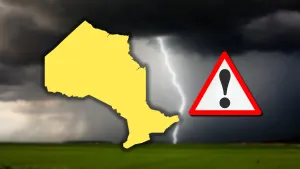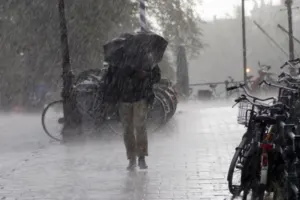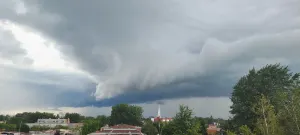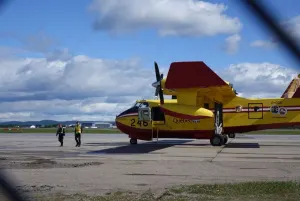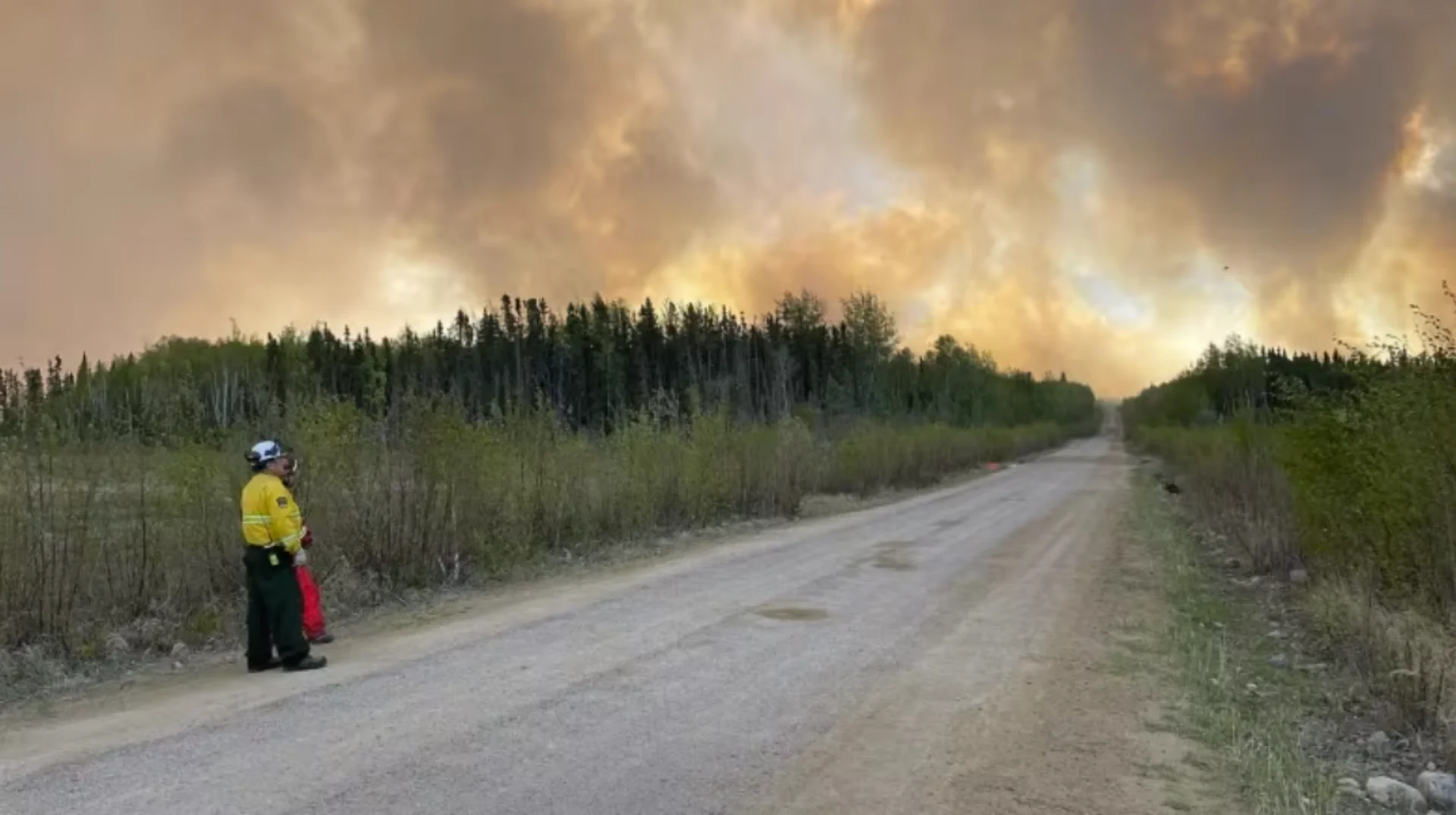
Land burned in 2023 Sask. wildfires about 5 times the size of P.A. National Park
Saskatchewan is coming out of one of its most severe wildfire seasons on record.
Saskatchewan has seen 494 fires in 2023, surpassing the five-year average of 378 fires, Saskatchewan Public Safety Agency vice-president Steve Roberts said at a news conference Thursday.
"From a magnitude issue, this is one of the busiest seasons that I have experienced in my 25 fire seasons in this province," he said.
"Approximately 1.9 million hectares of land was burned this year in wildfires. That is about five times the size of Prince Albert National Park and is greater than what was burned in 2015."
Roberts said while there have been years when the number of hectares burned was higher, the number of fires meant Saskatchewan had to seek assistance from Quebec.
Roberts said their fleet of aircraft had a hectic summer, flying more than 2,500 hours in fire suppression work. The agency delivered more than 500,000 litres of retardant during fire operations. Another 16,000 hours were flown in contract helicopter use and $7 million was spent hiring heavy equipment to protect communities and critical items, Roberts said.
DON'T MISS: Canada's summer defined by record wildfires, damaging floods and storms
The agency said a total of 2,703 people were evacuated in the province due to wildfires, but there was minimal destruction of property, with 43 structures lost to fire.
There were no fatalities due to wildfires within the province this year, Roberts added.
Roberts said the province is not out of fire season yet and there's still a fire risk. Parts of Saskatchewan forests are still dry and people should exercise caution as they hunt and use the forest for livelihoods and leisure.
As of Thursday, there were zero active fires in the province, Roberts said.
Loss of sequestered carbon astronomical: U of S prof
Colin Laroque is head of the department of soil science at the University of Saskatchewan's college of agriculture. He said, like everybody else, he woke up to many smoky days this summer.
"We had huge fires — astronomical numbers. It's hard to comprehend how much, but it's so much of our forest and our long-term carbon sequestration in both the soil's and wood's biomass. It's all gone," he said.
Laroque said fires sweep through the above-ground biomass, so that instead of the carbon being sequestered and stored for the long term, it is released.
The below-ground surface starts to rot away and respire back into the atmosphere too, he said. That means the underground root network is also burnt away as, many times, fires continue to burn underground all winter.
"We've burned so much of that carbon stock, that it's a source of carbon. It's not a sink of carbon anymore," he said.
"The root network will go; the microbial activity will go, and it'll keep releasing a lot of carbon for a long time."
MUST WATCH: New map visualizes entire 2023 wildfire season in Canada, the worst on record
Laroque said very old forests, which have trees sequestering carbon for more than 100 years, will lose more carbon in wildfires compared to those replanted 40 years ago.
He said as climate change worsens and wildfires become more common, there will be added carbon loss. The changes affect insects too.
"Since 2010, it's been pretty evident that we've been losing more carbon than we're storing," he said. "As it gets drier and the conditions are harder for these trees to grow, these insects are over-wintering better. They're eating more trees. When they wake up in the spring, they're not dying off. They eat more trees come next summer and often kill those trees after one or two or three years."
That creates more forest fire fuel, causing bigger and longer fires, Laroque said. The biggest fire years have all been in the last decade, he added.
"We're in a really poor loop," he said. "We don't know where the end is coming right now, so it might not get better for a while."
This article, written by Pratyush Dayal, was originally published for CBC News.
Thumbnail image courtesy of Besnard Lake Lodge via CBC News.






